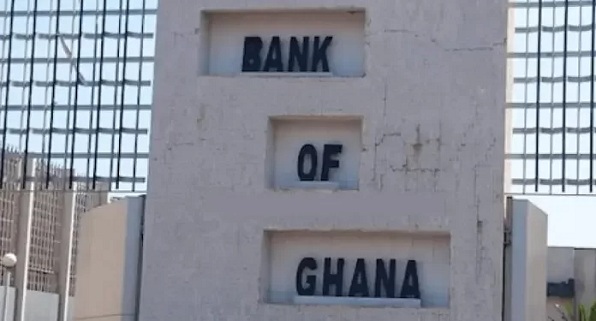The Bank of Ghana (BoG) has published an Exposure Draft proposing substantial regulatory reforms to tackle the ongoing challenge of Non-Performing Loans (NPLs) in the banking and financial services sector.
The draft outlines stringent new measures aimed at enhancing asset quality, preserving sector profitability and safeguarding financial system stability.
The proposed regulations are expected to have a significant impact on the banking and financial services sector, promoting a more robust credit risk management framework and reducing the risk of NPLs.
Sources at the central banks said the new policy follows a comprehensive review of its problem asset framework in light of increasing credit risk exposure that threatens the solvency and liquidity of Regulated Financial Institutions (RFIs).
Under the proposed directives, RFIs will be required to maintain a robust credit risk management framework, adhere strictly to the 10 per cent prudential limit on NPLs, write off all fully provisioned and unrecoverable loans, restructure loans for qualifying distressed but viable borrowers and promptly enforce collateral recovery on written-off loans.
Remedial actions
The BoG also proposes remedial actions, including requiring RFIs to submit lists of loan defaulters whose debts have been written off to both the BoG’s Financial Stability Department and all credit reference bureaus.
Defaulters not written off must also be reported to credit bureaus in line with applicable regulations. Furthermore, RFIs are barred from granting fresh credit to listed defaulters deemed to be willful defaulters unless the default was due to a verified natural disaster or disability.
The draft also outlines key sanctions, including disqualifying willful defaulters from accessing new credit facilities across the banking sector following the BoG’s approval of the write-off.
Repeat willful defaulters – listed on two or more occasions – will face a five-year credit ban or a longer prohibition where applicable. Company directors found complicit in financial misrepresentation or fraud will be disqualified from credit access for the same duration as their defaulting entities.
Sanctions
Additionally, RFIs will be required to publicly disclose willful defaulters by publishing their identities in at least two nationally circulated newspapers and on their websites.
The BoG is soliciting written comments from industry stakeholders and the public, as part of its commitment to collaborative regulatory development and enhanced credit governance.
The proposed reforms are expected to enhance the stability and profitability of the financial sector, promoting a more sustainable and responsible lending environment.
The BoG’s commitment to addressing the challenge of NPLs is evident in the Exposure Draft, which aims to promote a culture of credit discipline and responsibility among borrowers and lenders alike.
Tackling high NPLs
At the recent Monetary Policy Committee news conference in Accra, the Governor of the Bank of Ghana, Dr Johnson Asiama, announced comprehensive measures that will mandate the write-off of fully provisioned loans with no realistic recovery prospects, while capping NPL ratios at 10 per cent of gross loans by December 2026.
The directive also tightens restructuring rules and enforces timely collateral recovery for overdue loans.
Perhaps, most significantly, the NPL directive will require banks to publicly disclose blacklisted willful defaulters in their audited financial statements, along with sectoral breakdowns of NPL exposures.
This transparency measure aims to sharpen both regulatory and investor focus on systemic credit risks while creating additional pressure for loan recovery efforts.
Governance concerns
Dr Asiama also announced a new directive that aims to address governance concerns in foreign-owned banks operating in Ghana.
He expressed concern about the outsourcing of major credit and risk decisions to offshore principals who fall outside Ghana’s regulatory oversight, with local boards serving merely as “rubber stamps” for externally made decisions.
The new governance directive will require local boards and management teams to retain genuine authority over all material credit decisions and risk management actions taken in Ghana.
Prior approval from the Bank of Ghana will be required before any delegation of key decision-making functions to foreign entities, representing a significant shift in how multinational banks operate in the country.
Dr Asiama was particularly emphatic about this governance issue, stating that “Ghana-based boards must not serve as rubber stamps for instructions issued from offshore.”
He warned that such practices undermine effective governance and create unacceptable regulatory blind spots that could threaten financial stability.
-Graphic-





